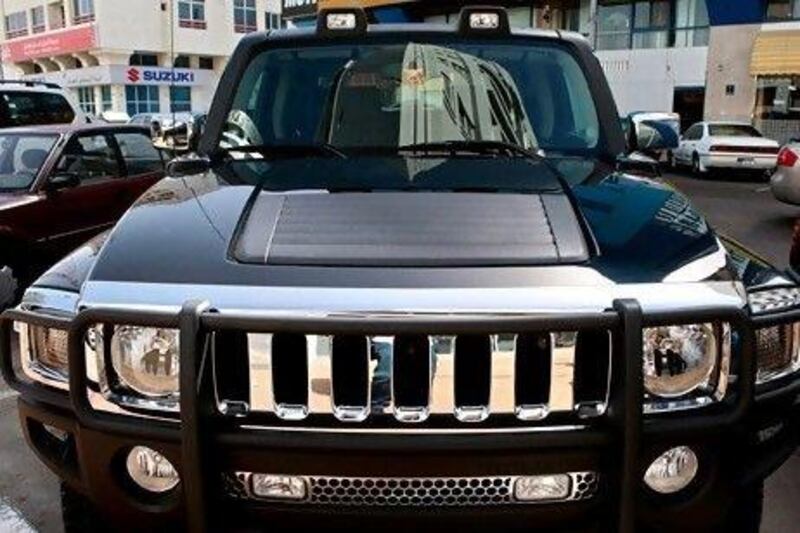When I arrived in Abu Dhabi in the winter of 2008, it was with dreams of kicking up dust in a Hummer and living in a rap-video villa. Instead, I ended up with a tiny apartment wedged in near Al Wahda, where my only furniture was a mattress on the floor.
The reason for my austere existence was that I was completely broke. And the cause of this, in turn, was the vast, relentless monster of a mortgage back home that consumed almost every last cent of disposable income I had. Instead of a gas-guzzler, I became very familiar with the unyielding seat of a silver cab.
I had woefully overestimated the purchasing power of my tax-free salary. So instead of doing a P Diddy, I was forced to do a Ghandi.
For most expats, the lifestyle is part of the experience. We want to do stuff we couldn't at home, where it's too wet, too expensive or simply unavailable. But from an investment point of view, this presents a dilemma. How do you split your salary between having a life now and saving for retirement? Being an expat adds another dimension with regard to your savings - how much goes back home, and how much stays?
It would take a particularly slick-tongued adviser to tell you he had the answer to this one. But the first consideration is to decide where it is you are going to retire. If you do not plan to spend your twilight years nodding off over your cup of prune juice in the shadows of Table Mountain don't invest in Cape Town, even if that's where you find yourself now.
It may be true that in our increasingly interconnected world that distance is not the issue it once was. Internet banking and electronic transfers make it possible to move funds around the globe in a way once open only to mobsters and Cuban revolutionaries.
But politicians, the markets and bureaucrats will conspire to relieve you of cash at every step of the way. Many offshore retirees are learning this the hard way, as the baht, rupee and other sunny-side-up currencies gain against the pound, euro and dollar.
And for the citizens of some countries, having offshore investments can be illegal. For the wealthy, who can afford to hire tax lawyers, this is not a huge problem. But for the salaried 99-per centers who are forced to rely on humbler channels of advice, this is not an option.
Therefore the second consideration, after deciding where you intend to retire, is to look at the kind of liabilities - tax and legal - you would face if you have any of your wealth offshore.
Third, investors should be wary of putting their money into unfamiliar products - offshore banking being a good example of how to erode wealth even as you buy the blarney that it offers you a tax-free haven for your cash.
The institutions that seductively tout their services to itinerant workers may safeguard your money; but they do very little to make it grow. The interest they pay on deposits can be laughable - they rely on the sleight of hand that has you believing that saving on tax is more important than inflation-beating returns.
So choose your bank wisely, and make sure you are aware of what investment products it offers, if you decide to use it as a guardian of your long-term financial security.
But, this does not mean ignoring a foreign-based opportunity when it stares you in the face. Many investors made a killing in the heady days of the Dubai property boom. And as it surely must, the trend will once again swing in favour of the region's property sector. For offshore workers, proximity to such opportunities is worth taking advantage of.
Even so, many an expat has war stories of fortunes made and lost in the Gulf, Hong Kong, the Americas and elsewhere. These are worth listening to. The rules of investing in a foreign country are frequently opaque and invisible to the outsider. When things go wrong, they can leave your finances in ruins.
For this reason alone its often simpler to plan your retirement back home, even if you do have your eye on a dotage spent in a more exotic setting. And given the transient nature of working abroad, its good to know that there's a corner of the world where your wealth is quietly growing, even as you shift around from place to place to earn your living.
Gavin du Venage is a business writer and entrepreneur based in South Africa.






